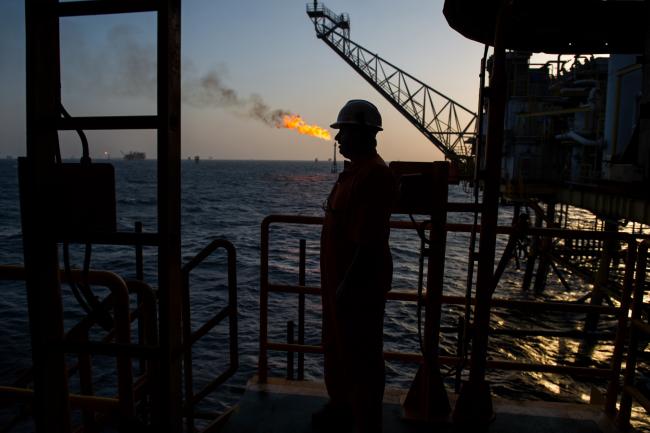(Bloomberg) -- Oil extended losses after plunging 10% in four days as the prospect of a sharp slowdown in global economic growth due to trade frictions overshadowed Saudi Arabia’s pledge to maintain market stability.
Futures in New York fell 0.2% after swinging between gains and losses earlier. JPMorgan Chase & Co (NYSE:JPM). said Monday the chance of a U.S. recession in the second half had risen to 40% from 25% a month ago. Vitol Group, the world’s largest oil trader, expects OPEC and its allies to roll over output targets that expire in June after Saudi Energy Minister Khalid Al-Falih said Monday he was committed to doing whatever it takes to stabilize markets.
Oil has fallen almost 20% from a peak in late April, taking it to the brink of a bear market, as trade relations between Washington and Beijing soured and the White House announced tariffs on Mexican goods. Rising U.S. inventories have also weighed on prices, while the likelihood that the Organization of Petroleum Exporting Countries and allied producers will extend their output curbs doesn’t seem to be having much impact.
“That the Saudi energy minister’s remarks failed to boost crude prices suggests investors are focusing on trade tensions and U.S. oil,” said Satoru Yoshida, a commodity analyst at Rakuten Securities Inc. in Tokyo. Unless there’s a new geopolitical threat, such as a missile attack in the Middle East, West Texas Intermediate crude could drop below $50 a barrel before OPEC decides on whether to extend the production cuts, he said.
WTI fell 13 cents, or 0.2%, to $53.12 a barrel on the New York Mercantile Exchange at 11:43 a.m. in Singapore after dropping as much as 39 cents earlier. The contract closed down 25 cents to $53.25 on Monday, taking its decline since its April 23 high to 19.7%.
Brent for August settlement dropped 30 cents to $60.98 a barrel on London’s ICE (NYSE:ICE) Futures Europe exchange. The contract lost 71 cents, or 1.2%, to $61.28 on Monday. The global benchmark crude was trading at a premium of $7.75 to WTI for the same month.
See also: Trump Can’t Gloat About China Stock Crash in Trade Battle
Asian stocks edged lower Tuesday following drops in U.S. equities. Congressional Republicans have begun discussing whether they may have to vote to block President Trump’s planned tariffs on Mexico, the Washington Post reported, citing people familiar with the talks.
Saudi Arabia’s Al-Falih said he’s confident the OPEC coalition “will do what is needed to sustain market stability beyond June.” Recent oil price volatility is “unwarranted,” he said in an interview with the state-run Saudi Press Agency.
The kingdom boosted production last month by the most this year as output from fellow OPEC member Iran plunged to the lowest since 1990 due to U.S. sanctions, according to a Bloomberg survey of officials, analysts and ship-tracking data. The figures indicate that Saudi Arabia has been willing to replace the lost Iranian barrels, setting the stage for a contentious meeting when the cartel and its partners gather in the coming weeks.
